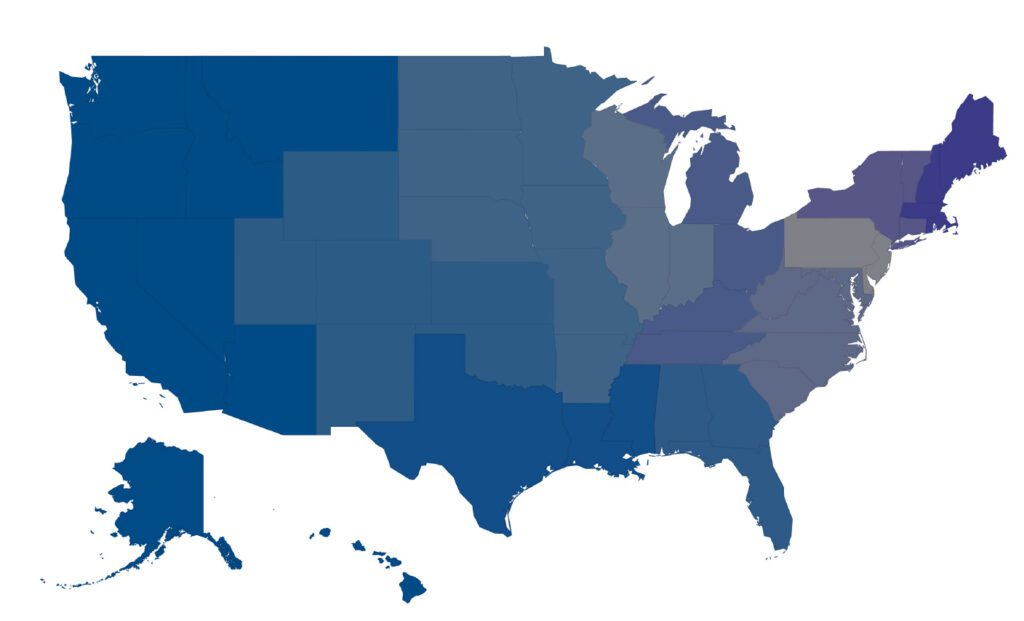Virginia
Virginia § 8.01-676.1. Security for appeal.
A. Security for costs of appeal of right to Court of Appeals. A party filing a notice of an appeal of right to the Court of Appeals shall simultaneously file an appeal bond or irrevocable letter of credit in the penalty of $500, or such sum as the trial court may require, subject to subsection E, conditioned upon paying all costs and fees incurred in the Court of Appeals and the Supreme Court if it takes cognizance of the claim. If the appellant wishes suspension of execution, the security shall also be conditioned and shall be in such sum as the trial court may require as provided in subsection C.
B. Security for costs on petition for appeal to Court of Appeals or Supreme Court. An appellant whose petition for appeal is granted by the Court of Appeals or the Supreme Court shall (if he has not done so) within 15 days from the date of the Certificate of Appeal file an appeal bond or irrevocable letter of credit in the same penalty as provided in subsection A, conditioned on the payment of all damages, costs, and fees incurred in the Court of Appeals and in the Supreme Court.
C. Security for suspension of execution. An appellant who wishes execution of the judgment or award from which an appeal is sought to be suspended during the appeal shall, subject to the provisions of subsection J, file a suspending bond or irrevocable letter of credit conditioned upon the performance or satisfaction of the judgment and payment of all damages incurred in consequence of such suspension, and except as provided in subsection D, execution shall be suspended upon the filing of such security and the timely prosecution of such appeal. Such security shall be continuing and additional security shall not be necessary except as to any additional amount which may be added or to any additional requirement which may be imposed by the courts.
[…]
I. Forms of bonds; letters of credit; where filed. The Clerk of the Supreme Court shall prescribe separate forms for bonds, one for costs alone, one for suspension of execution, and one for both and a form for irrevocable letters of credit, to which the bond or bonds or irrevocable letters of credit given shall substantially conform. The forms for each bond and the letter of credit shall be published in the Rules of Court. It shall be sufficient if the bond or letter of credit, when executed as required, is filed with the trial court, clerk of the Virginia Workers’ Compensation Commission, or the clerk of the State Corporation Commission, whichever is applicable, and no personal appearance in the trial court, Virginia Workers’ Compensation Commission, or State Corporation Commission by the principal, the surety on the bond or the bank issuing the letter of credit shall be required as a condition precedent to its filing.
J. In any civil litigation under any legal theory, the amount of the suspending bond or irrevocable letter of credit to be furnished during the pendency of all appeals or discretionary reviews of any judgment granting legal, equitable, or any other form of relief in order to stay the execution thereon during the entire course of appellate review by any courts shall be set in accordance with applicable laws or court rules, and the amount of the suspending bond or irrevocable letter of credit shall include an amount equivalent to one year’s interest calculated from the date of the notice of appeal in accordance with § 8.01-682. However, the total suspending bond or irrevocable letter of credit that is required of an appellant and all of its affiliates shall not exceed $25 million, regardless of the value of the judgment.[…]”

**In Federal cases the bond requirement is governed by Federal Rule of Civil Procedure “62(b) Stay by Bond or Other Security. At any time after judgment is entered, a party may obtain a stay by providing a bond or other security. The stay takes effect when the court approves the bond or other security and remains in effect for the time specified in the bond or other security.”**
The information contained on our site is for general information purposes, and you should consult with your attorney for the most up to date civil code or local rule that applies to your case.
Choose the State...
Experience the CSBA Difference today
Expert Guidance • First-Class Service • More Options








